Search
Using the filters to the left, click your selection, it will become bold and filter the results, click it again to remove that filter.
The projection of policing on the modern day battlefield is something that has been recognised as a necessity for many years. The requirement for immediate law enforcement activities and imposition of the rule of law at the end of conventional operations is regarded as something that goes hand in hand with security and stability of a region [1] . Often, Civilian or indigenous Policing elements are rarely in a position to assist at the tactical level of operations, and if they are, they are barely in …
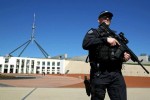
Victory smiles upon those who anticipate the change in the character of war, not upon those who wait to adapt themselves after the changes occur — Giulio Douhet Since the establishment of the Australian Army, soldiers have combined tools and tactics to dictate tempo, influence perceptions, impose fear and anxiety, as well as innumerable mediums to defeat the adversary or achieve mission objectives. As we navigate to the future, the Australian Army should consider adapting to meet the new challenges of a …

Note: The author attended the Australian Army Research Centre’s (AARC) 2017 Vietnam Staff Ride focussed on the Battle of Dien Bien Phu. Participants on the staff ride were Captains and Majors identified through their performance on the Combat Officers’ Advanced Course (COAC) and Logistics Officers’ Advanced Course (LOAC). Introduction The failure of logistics and combat service support during the Battle of Dien Bien Phu contributed to the devastating defeat of the expeditionary French military in May 1954. …
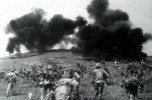
“The ultimate goal of a military operation is to ensure that a person no longer poses a threat to the troops by putting that person out of action in combat, by taking that person prisoner, or by detaining him… we can no longer solely rely on intelligence based operational planning; we must use Evidence Based targeting to ensure these criminals are brought to justice…” COL Voetelink, Norwegian Army, 2014 Military operations over time have seen tactics, techniques and procedures evolve and adapt to suit a …
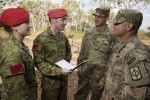
As a result of the recent First Principles Review (FPR), Defence underwent a significant restructure to more effectively design, acquire and sustain joint capabilities. The focus of the review was on ensuring that ‘Defence is fit for purpose and is able to deliver against its strategy with the minimum resources necessary.’ [1] The restructure reduced service stovepipes in order to develop a more ‘Joint by Design’ Australian Defence Force (ADF). This article posits that the ADF should embrace the …
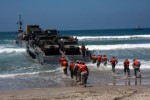
In the post, ‘Applying the Logistic Lessons of the French Defeat at Dien Bien Phu’ CAPT Williamson has correctly identified the requirement to balance the interplay between effectiveness and efficiency. During the planning phase for an operation, logisticians should aim to design a supply chain that emphasises effectiveness closer to the main effort in order to maintain tempo. Efficiency remains a critical element of logistics, however is more important closer to the National Support Base. An effective …
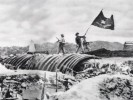
The world has already missed the opportunity to prevent many of the most serious consequences of Climate Change. Although much has been written on the topic of Climate Change and its causes (manmade or otherwise), the climate is changing and Defence is not prepared for this reality. The modernisation of the Australian Defence Force to counter climate effects is often couched in terms of the readiness of forces to utilise their current capabilities to conduct disaster relief operations. The only direct …

Robots are no longer new on the battlefield, and neither are drones after their widespread use in nearly every major conflict fought by a modern Army in recent times. The ethics, responsibilities and vulnerabilities of military robots are still being debated in academic, industry and government circles whilst robots have added to the capabilities of Intelligence, Surveillance and Reconnaissance (ISR) and, occasionally delivered weapon effects as required. But the most understated potential for drones …
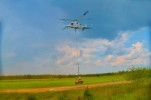
Any meaningful discussion of future land warfare should include enhancing combat effectiveness by integrating technology with the soldier. While such discussions usually involve the exciting ethical dilemmas presented by the ‘super soldier’ , the complementary discussion about the practicalities of how Army is to get from the present to the ‘super soldier’ receives less attention. The Future Land Warfare Report 2014 indicates Army’s willingness to consider technology being ‘ in ’ the soldier (e.g. …
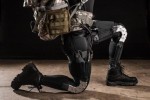
Without changing our patterns of thought, we will not be able to solve the problems we created with our current pattern of thought. Albert Einstein. The Australian Army is working to embrace a digital culture, but slow action is compromising future combat performance. Decisions made now will be realised on a vastly different future battlefield. To compete, Army must cognitively commit to gaining the technological edge by developing digital fluency in everyday decisions. Digital fluency is the objective of …

